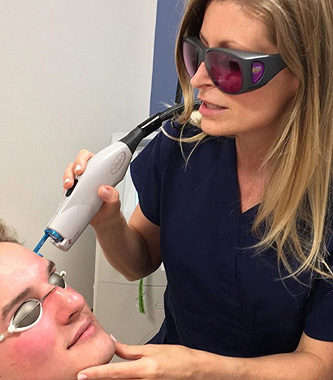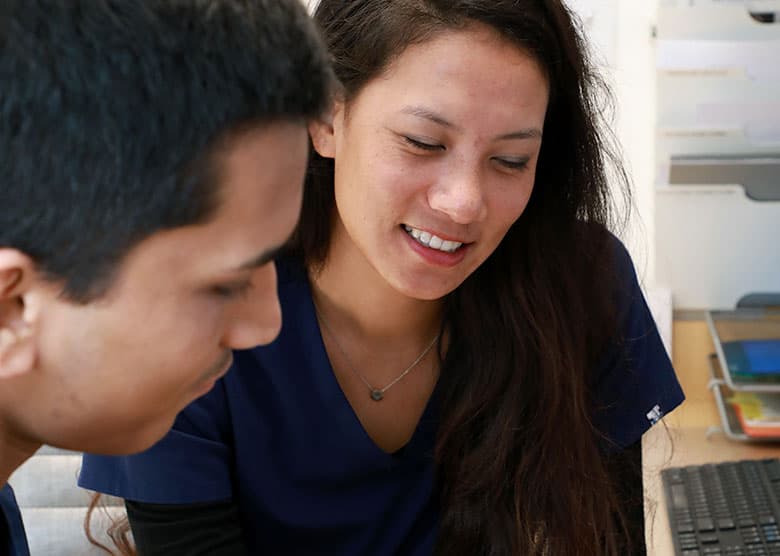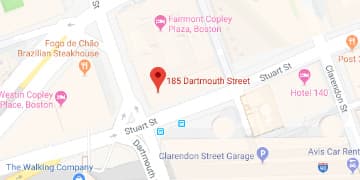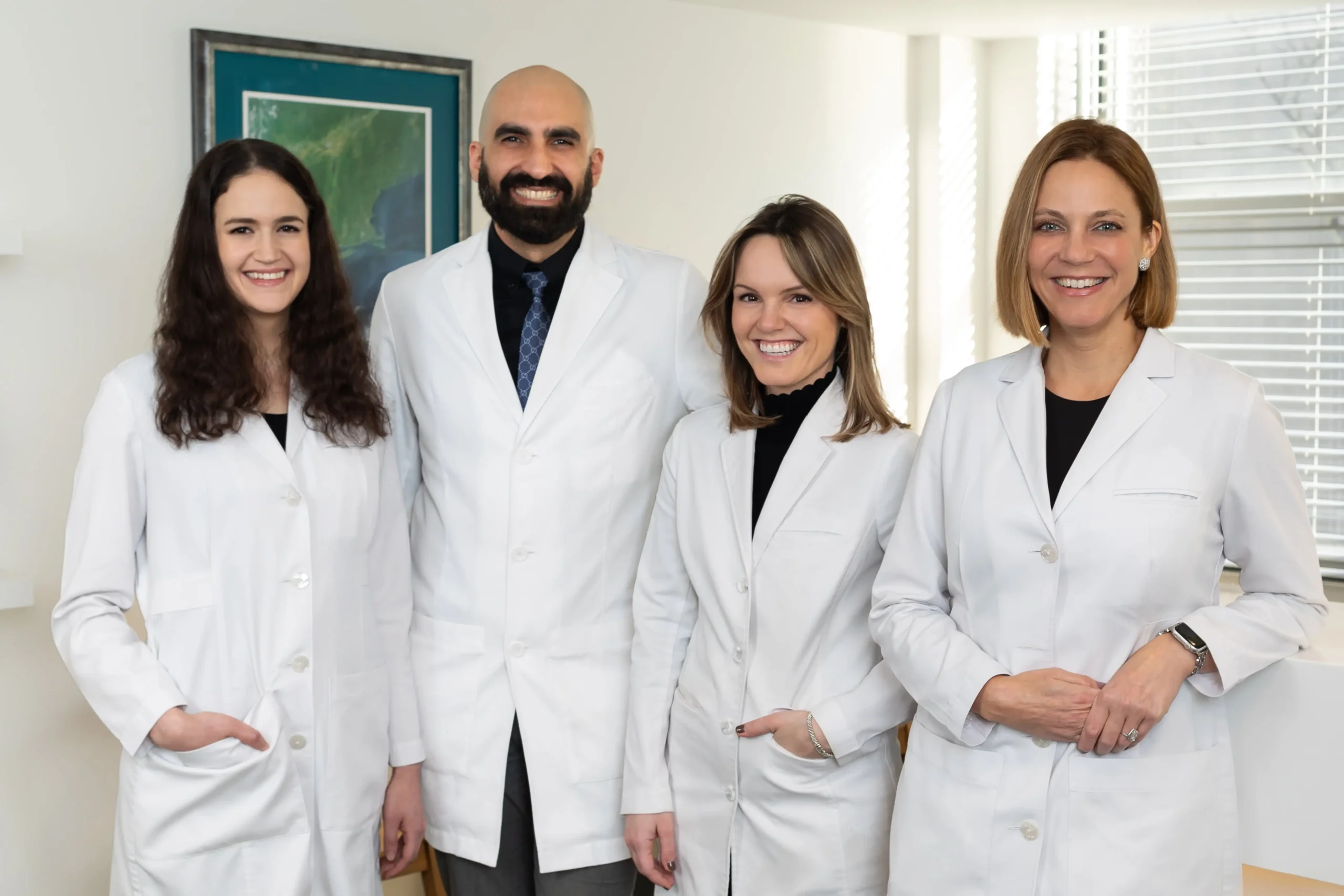Rosacea Laser Treatment
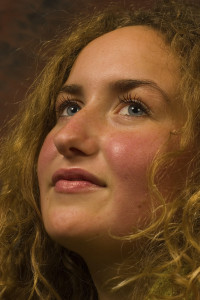
Rosacea is a skin disease that normally begins with redness on the nose, cheeks, chin, and forehead. People with rosacea may experience flushing, itching, and burning of the skin.
Oftentimes the redness and symptoms can flare up with certain triggers. Drinking red wine, exercising, extreme heat or cold temperatures, or spicy foods may aggravate rosacea.
Some people with rosacea will also have pimple-like bumps on the skin and others may also have thickening of the skin on the nose. Some patients have broken blood vessels that are apparent on the nose, cheeks and chin.
Rosacea not only affects the skin. A type of rosacea known as ocular rosacea affects the eyes and creates dry and itchy eyes. Rosacea can affect men or women and people of all skin colors but it is more common in individuals with fair skin.
Rosacea begins in adulthood. Its cause is unknown but there are theories that are currently being investigated. Rosacea is not contagious.
There are medicines and therapies which can help control rosacea and improve its symptoms. Your dermatologist may recommend pills, creams, washes, or laser treatments to help your rosacea.
Rosacea can be treated effectively with PDL.
The Pulsed Dye Laser or PDL uses a concentrated beam of light that aims at blood vessels in the skin. The light is changed over into heat, obliterating the blood vessel while leaving the encompassing skin undamaged; requires minimal downtime.
